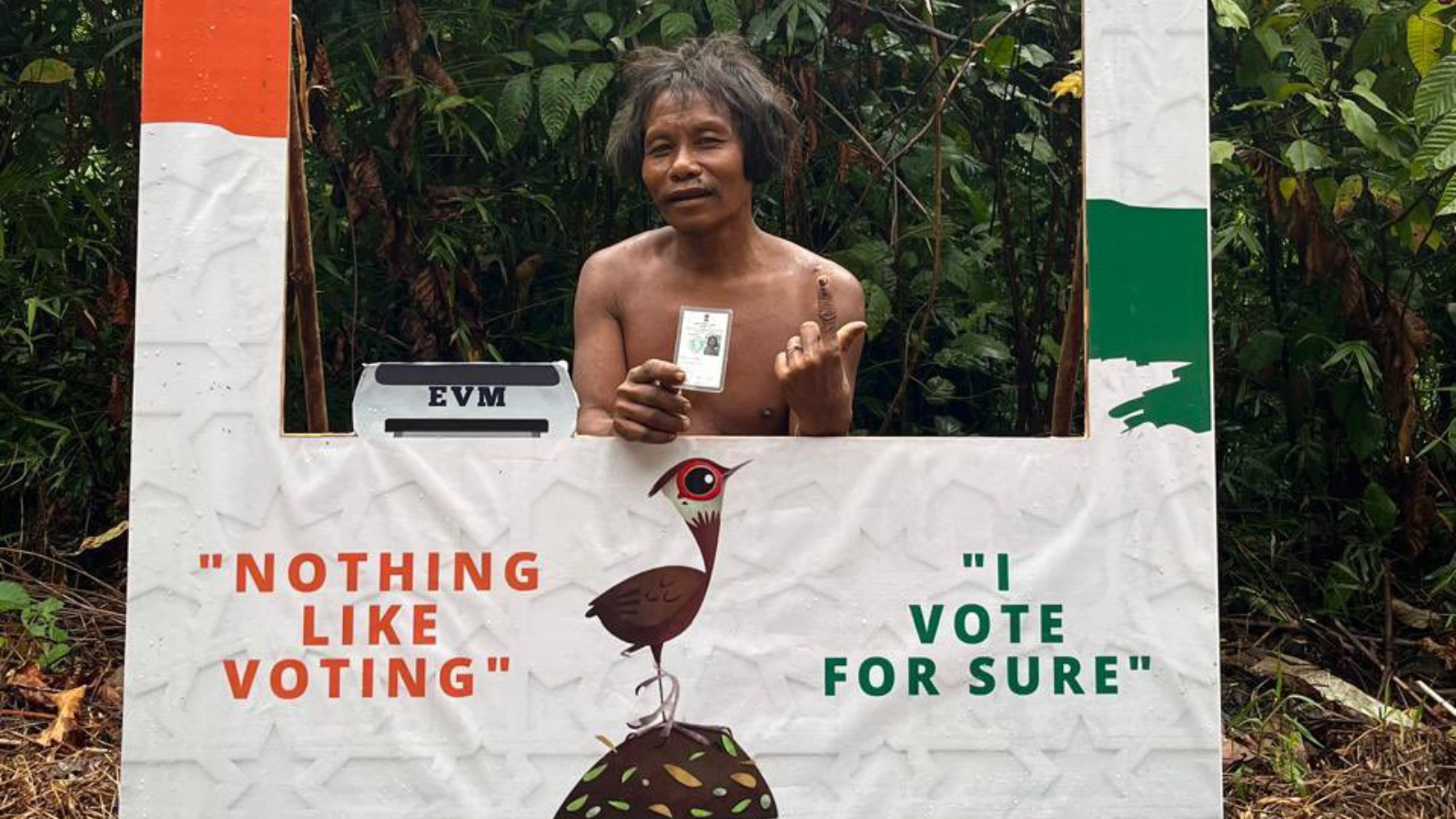Making the Lok Sabha Election 2024 as the largest election in the world, it is also breaking records. In a remarkable turn, seven members of the Shompen tribe, categorized as a particularly vulnerable tribal group (PVTGs), exercised their democratic rights by casting their votes for the lone Lok Sabha seat in Andaman and Nicobar Islands. This historic occasion unfolded at polling station 411, aptly named ‘Shompen Hut’, marking a significant milestone for the indigenous community residing in the Great Nicobar Islands.
A historic moment unfolds as the Shompen tribe of Great Nicobar casts their votes for the first time in #GeneralElections2024. Every vote marks a milestone in their journey towards empowerment and representation.#ECI #LokSabhaElections2024 #ECISVEEP #IVoteforSure pic.twitter.com/Dril7oHCy4
— Chief Electoral Officer, Andaman & Nicobar Islands (@AndamanCEO) April 19, 2024
Adding to the diverse tapestry of voters were newly married couples, some of whom wasted no time in participating in the democratic process immediately after exchanging vows. Across various regions, from the picturesque landscapes of Rajasthan to the serene settings of Chhattisgarh, these couples adorned in traditional attire, exemplified their commitment not only to each other but also to their civic duty.
The spirit of democracy reverberated in every corner, as individuals of all ages and physical abilities embraced the opportunity to cast their votes. The Election Commission’s provision of facilities such as stretchers and wheelchairs ensured that the elderly and physically challenged were not deprived of their right to vote. Rejecting the convenience of home voting, esteemed citizens like the 95-year-old retired Navy official in Jaipur and the 92-year-old retired professor in Bihar demonstrated unwavering determination as they personally made their way to the polling booths, emphasizing the significance of their vote.
Also Read: SBI Agent In Polling Station Making A Buzz In Public, Who Is She?
In a bid to enhance accessibility and promote grassroots democracy, polling booths were set up in 56 villages across Bastar in Chhattisgarh, empowering local communities to actively participate in the electoral process. However, amidst the celebrations of democracy, instances of poll boycotts in villages like Nehuta in Bihar, Uralipatti in Tamil Nadu, and Purana, Dahgala, and Bakshpur in Uttar Pradesh underscored the pressing need for addressing grievances related to basic amenities and infrastructure development.
The democratic fervor encountered unexpected challenges, exemplified by an incident in Assam’s Lakhimpur constituency, where an electronic voting machine (EVM) laden SUV partially sank into a river, highlighting the unpredictable nature of electoral logistics.
Amidst the electoral chaos, stories of hope and resilience emerged from regions like Jammu and Kashmir’s Dhadkahi, aptly termed the “silent village”, where residents, despite facing communication barriers, exercised their franchise with optimism, aspiring for improved infrastructure and essential services.
Across the nation, acts of kindness and determination were witnessed, as sons accompanied their disabled fathers to polling stations, elderly women were carried in richly adorned palanquins, and communities came together to overcome personal grief and fulfill their civic responsibilities.






















